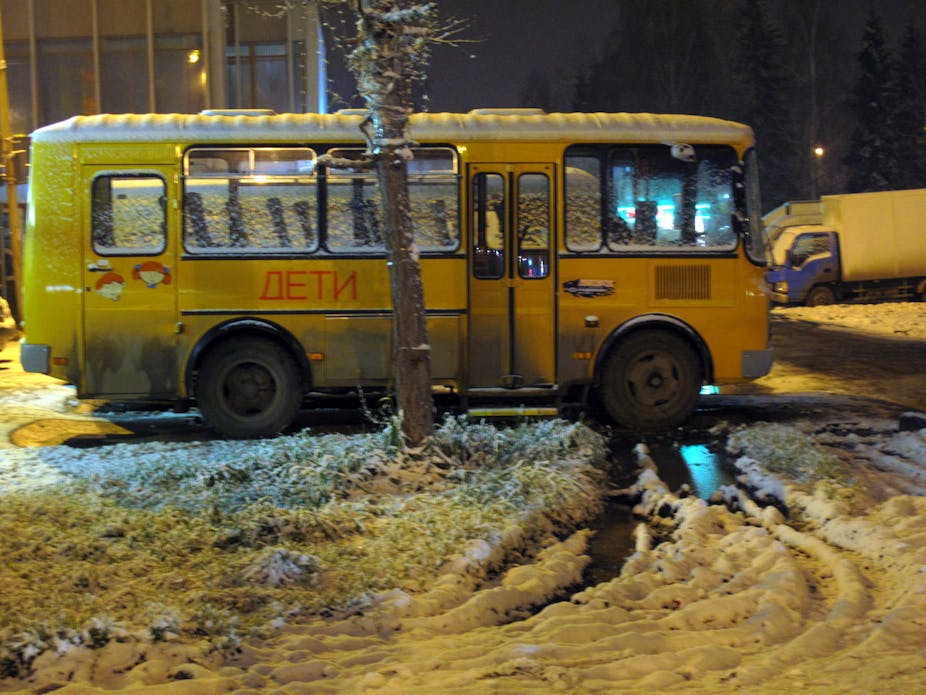Russian parents don’t believe the country’s school system is doing a good job and many remain uncomfortable about a new law that means they can be asked to pay for additional educational services for their children. In an as yet unpublished survey, 87% of parents feel the school system is in need of reform and another 64% feel reforms are needed in higher education.
The survey of 1,200 parents throughout Russia was commissioned in October and November 2014 by the Institute of Sociology, Russian Academy of Sciences. A preliminary analysis of the results found that parents are, understandably, concerned by the growing practice of payment for some educational services.
Paying extra
According to the 2014 Federal Law on Education, Russian schools have the right to provide additional paid educational services on a contractual basis. Such practice is considered justified by 52% of parents. At the same time, 48% of parents, regardless of whether they live in urban or in rural areas, consider it breaks the principle of general basic education provided by the state through taxes that is free of charge at the point of provision.
Opinion was divided about parents paying for classes that augment the core curriculum, with half in favour and half against. And according to 65% of parents, any income gained from providing additional educational services should be used as additional salary for teachers, and for other needs of the school. The other 35% considered collecting extra money to pay for this to be illegal.
But parents’ objections to paying for extra educational services isn’t matched by their actual behaviour – as the list of extra payments made by parents to schools is extensive.
According to the survey results, the average amount spent per child by one family on optional cash expenditures is estimated at 400 Russian rubles per month, which was equivalent to approximately US$9 at the time of the survey.
Add this up over a year – 4,800 roubles – and per child it’s the equivalent of around a third of the monthly average income per person outside major cities of approximately 15-20,000 roubles ($250). In Moscow, the average income per person would be double this.
Our survey showed that 53% of parents considered it was acceptable to spend this amount. In practice, most parents make unofficial, even illegal, payments towards such things as school repairs, visual aids, security personnel – even cash gifts to teachers – and recognise the “need” for such payments. These findings were supported by a survey reported in Nezavisimaya Gazeta in 2011.
Confusion over reforms
Our preliminary analysis of the survey suggests that Russian parents are confused about the purpose and content of current educational reforms. About a third of parents say that they “know” of reforms that have introduced the Unified State Examination (USE) or Edinyi gosudarstvennyi examen ЕГЭ, which will have an important impact on the access of their children to higher education. Since 2009, the results of the USE, a centrally organised series of exams for school leavers, are the only way of getting into university.
This apparent lack of knowledge about the process of these ongoing reforms didn’t prevent parents giving their opinion on policies that directly affected their family interests. Almost 70% of parents surveyed favoured the development of several possible “educational trajectories” for their children, including both academic and vocational options. This means a pupil-centred approach with the volume and content of material adjusted by teachers according to the requirements of each child.

Parents are specifically concerned about the qualifications and professional competence of teachers, the content and delivery of the curriculum, schools’ financial resources and the standard of equipment.
They are also concerned about the hygiene and the general care of pupils. We estimate from the responses of parents that 14% of pupils in Russia at all levels have chronic diseases, while another 7% of children have health problems. Officially, the basic school enrolment is 13m indicating that approximately one fifth – 2.7m – have serious health issues. This is a major social problem.
When it comes to higher education, parents are concerned about the gap between the courses that are on offer and the demands of the labour market. The attitude to the Unified State Examination is also ambiguous. For example, 40% of parents were unsure whether the examination provided an objective assessment of school leavers while only 25% said they thought it did. Only a quarter of parents said they thought the exam had a positive effect on the future access of their children to higher education. Parents in Russia see the need for educational reform, but remain pessimistic about the prospects for its success.

